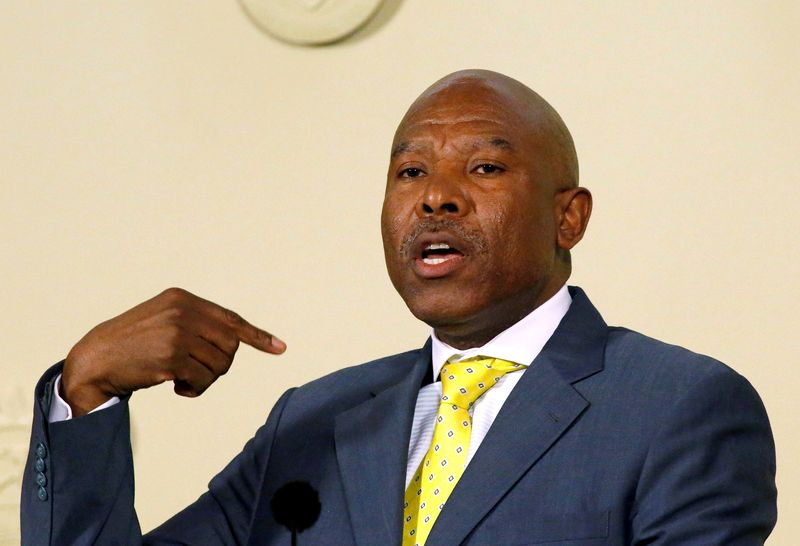Who is Kevin Hassett? Wolfe looks at the Trump ally tipped to become Fed Chair.
By Kopano Gumbi and Anait Miridzhanian
JOHANNESBURG (Reuters) -South Africa's central bank delivered another big interest rate hike on Thursday, taking its main lending rate back near pre-COVID levels as it battles to bring inflation back to target.
The South African Reserve Bank (SARB) raised its repurchase rate by 75 basis points (bps) to 6.25%, in line with the forecast of the majority of economists polled by Reuters.
The rand pared gains against the U.S. dollar after the decision was announced, as some traders had positioned for a larger hike.
The SARB has now raised rates for the sixth time in a row, adding a total of 275 bps to the repo rate since its latest tightening cycle began in November 2021.
Analysts said they expected the SARB to raise rates by a smaller margin at its final monetary policy meeting of the year in November.
"If the Reserve Bank raised rates by 50 basis points, I think we should be near the end of the rate hiking cycle," said Tertia Jacobs, a Treasury economist at Investec, adding that hiking rates beyond that level could take policy into restrictive territory.
The five-member Monetary Policy Committee (MPC) was split 3-2 in its latest decision, with three members preferring a 75 bps increase and two wanting a 100 bps hike.
That two MPC members preferred a more aggressive move took some economists by surprise, given that August inflation dipped to 7.6% year on year from 7.8% in July on the back of lower fuel prices.
The SARB targets inflation of between 3% and 6%.
"A failure to deal with inflation now would be detrimental to the economy down the line. And that is what our focus is," Bank Governor Lesetja Kganyago told a news conference.
Although the central bank did not alter its predictions for 2022 economic growth and inflation markedly, it stressed that a number of risks to the inflation outlook loomed large.
Further price shocks could come from Russia's war in Ukraine, electricity and wage agreements, the bank said in its MPC statement. But Kganyago told reporters that a lot could change between now and the November meeting given volatile economic and financial conditions.
(Additional reporting and writing by Alexander Winning; Editing by James Macharia Chege and Aurora Ellis)
